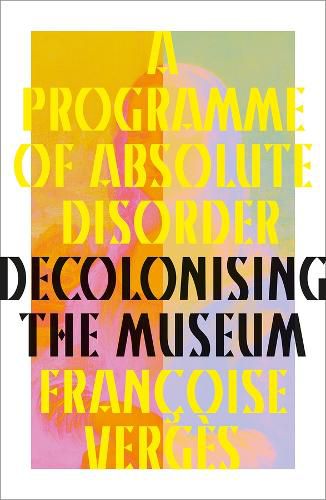Readings Newsletter
Become a Readings Member to make your shopping experience even easier.
Sign in or sign up for free!
You’re not far away from qualifying for FREE standard shipping within Australia
You’ve qualified for FREE standard shipping within Australia
The cart is loading…






'A complete overhaul of the Western museum tradition' - Publishers Weekly
The Western museum is a battleground - a terrain of ideological, political and economic contestation. Almost everyone today wants to rethink the museum, but how many have the audacity to question the idea of the universal museum itself?
In A Programme of Absolute Disorder, Francoise Verges puts the museum in its place. Exploring the Louvre's history, she uncovers the context in which the universal museum emerged: as a product of colonialism, and of Europe's self-appointed claim to be the guardian of global heritage.
Verges outlines a radical horizon: to truly decolonize the museum is to implement a 'programme of absolute disorder', inventing other ways of apprehending the human and non-human world that nourish collective creativity and bring justice and dignity to the dispossessed.
$9.00 standard shipping within Australia
FREE standard shipping within Australia for orders over $100.00
Express & International shipping calculated at checkout
'A complete overhaul of the Western museum tradition' - Publishers Weekly
The Western museum is a battleground - a terrain of ideological, political and economic contestation. Almost everyone today wants to rethink the museum, but how many have the audacity to question the idea of the universal museum itself?
In A Programme of Absolute Disorder, Francoise Verges puts the museum in its place. Exploring the Louvre's history, she uncovers the context in which the universal museum emerged: as a product of colonialism, and of Europe's self-appointed claim to be the guardian of global heritage.
Verges outlines a radical horizon: to truly decolonize the museum is to implement a 'programme of absolute disorder', inventing other ways of apprehending the human and non-human world that nourish collective creativity and bring justice and dignity to the dispossessed.